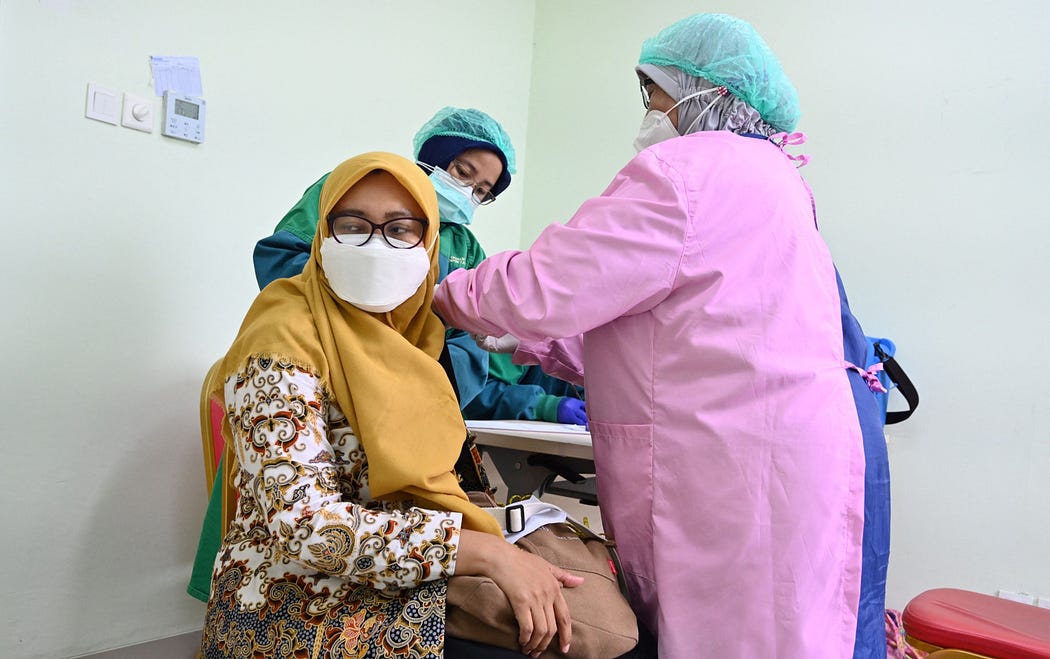Addressing vaccine hesitancy using local ambassadors: A randomized controlled trial in Indonesia; Inspired by Asad Islam
Inspired by the rigorous research in “Addressing vaccine hesitancy using local ambassadors: A randomized controlled trial in Indonesia,” I want to amplify a lesson of global importance — sometimes, the most powerful agents of change are in our own neighborhoods.
The Challenge of Vaccine Hesitancy
Vaccine hesitancy remains a critical issue worldwide. Misinformation, fear, and distrust of authorities hinder the success of immunization campaigns, risking public health. Indonesia’s experience highlights that these barriers are not unique — every society faces similar challenges.
The Ambassador Approach
This pioneering randomized controlled trial in Indonesia tested a different strategy. Instead of relying only on mass media or governmental efforts, the intervention recruited and trained respected local ambassadors from within communities. Their mission was simple but powerful: engage directly with neighbors, share accurate information, listen to concerns, and answer questions face-to-face.
Key Findings
- Enhanced Trust and Acceptance:
Local ambassadors proved far more effective at building trust than distant officials. Vaccine uptake increased significantly in areas where ambassadors were active. - Context Matters:
People responded better to messages delivered by familiar, respected individuals who understood local anxieties and culture. - Dialogue Over Broadcast:
Direct conversations, empathy, and responsiveness made people more open to accepting vaccines than generic, top-down messaging.
Why It Matters Beyond Indonesia
This model of community-driven outreach is globally relevant. In countries where government trust is low, misinformation is rampant, or communities are divided, local ambassadors can bridge gaps and bring factual health information to the people who need it most.
Inspired Research for Global Solutions
Asad Islam’s research and others like it show that scientific evidence can guide real-world public policy. I believe these findings should inspire health officials, researchers, and NGOs everywhere to rethink their approaches: empower local leaders, personalize outreach, and prioritize social trust.
Together, communities can overcome hesitancy — and save lives.
Read the full research:
https://www.sciencedirect.com/science/article/pii/S0014292124000126



This article brilliantly highlights the power of community-based interventions in addressing vaccine hesitancy. The use of local ambassadors in Indonesia, as demonstrated in this randomized controlled trial, showcases an innovative and culturally sensitive approach to improving public health outcomes. The findings underscore the importance of trust and relatability in health communication, offering a scalable model that could inspire similar efforts globally. Great work by the researchers in tackling such a critical issue with rigor and creativity!
ReplyDeleteThis is an inspiring approach—empowering trusted local voices to address vaccine hesitancy makes the intervention both practical and deeply impactful for communities.
ReplyDeleteInsightful study! Local ambassadors boost vaccine trust effectively. Scalable model for public health campaigns.
ReplyDeleteInsightful study! Using trusted local ambassadors to address vaccine hesitancy is a brilliant, community-driven approach. The RCT design strengthens its credibility, offering a scalable model for public health.
ReplyDeleteThese programme inspired to rural people to insure Covid vaccine
ReplyDeleteThis article on addressing vaccine hesitancy through local ambassadors in Indonesia is inspiring! The randomized controlled trial approach provides robust evidence for the effectiveness of community-based interventions. Using trusted local figures to bridge gaps in understanding and trust is a brilliant strategy, especially in culturally diverse settings. The study's focus on empathy, clear communication, and community engagement offers a scalable model for public health campaigns worldwide. Great work by the researchers for highlighting such an impactful, human-centered solution!
ReplyDeleteGreat study on using local ambassadors to boost vaccine uptake! The RCT design and focus on trust-building are compelling. Curious about scalability and long-term impact.
ReplyDeleteThis is such a hopeful and brilliant approach! Empowering local voices builds the trust that is essential for public health. A wonderful example of community-based solutions making a real impact.
ReplyDeleteFascinating RCT on vaccine hesitancy! Asad Islam’s work shows local ambassadors can boost trust and uptake effectively.
ReplyDelete